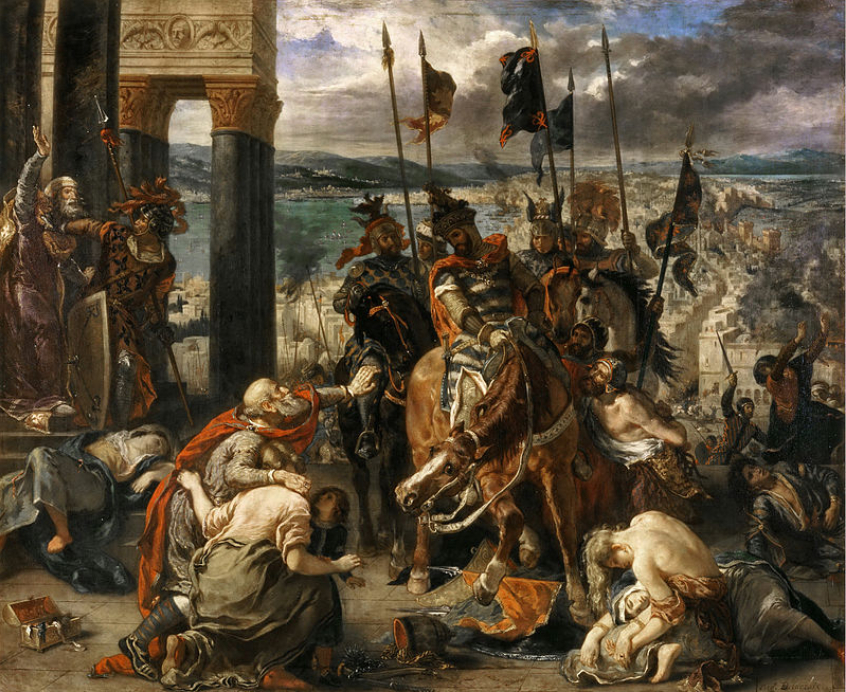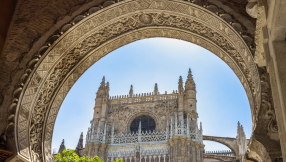On this day in 1204, the Crusaders decided that instead of pursuing the Holy Land they would sack the Byzantine city of Constantinople instead. Tens of thousands of people died. The city was taken amid great slaughter in an event that was regarded as shameful even at the time.
Widely regarded as a shocking betrayal of principles for greed, the diversion of the Fourth Crusade from the Holy Land to attack, capture, and pillage the city divided the Christians when it came to maintaining their war against the Muslims.

The background, as provided by Britannica.com, is that, in order to repay Venice for shipping most Crusaders eastward, they seized Zara on the Adriatic from Christian Hungary. At the same time, the exiled Byzantine prince Alexius offered a cash reward to be placed on the Byzantine throne. Therefore, the Crusaders sailed to Constantinople and, in July 1203, duly established Alexius as emperor. But in February 1204 Alexius was murdered and replaced by courtier Alexius Ducas, who ordered the Crusaders to leave.
In response, the Crusaders laid siege to Constantinople.
The initial assault on the city's defences was repelled with heavy losses among the Crusaders, but on April 12 they were successful. Men scrambled up the masts of ships and across catwalks to reach the tops of the city walls, while others on the shoreline hacked at a bricked-up gateway with picks and shovels.
After a gap was established in the walls, the armed cleric Aleaumes of Clari crawled in to find the street beyond practically deserted. Hundreds of Crusaders poured through, fought their way to a main gate, and opened it.
For the following three days the army pillaged freely, before the nobles imposed order and began a more systematic looting of the greatest city in Christendom.
Although the Crusader nobleman Baldwin of Flanders was established as emperor, most Byzantines refused to acknowledge him, and the empire fragmented into four feuding states.
The sack of Constantinople marks a major turning point in medieval history, with the Crusaders' decision to attack the world's largest Christian city, and reports of wild looting and brutality, wrecking relations between Catholics and Orthodox Christians for centuries. The Byzantine Empire never regained its former power and its overthrow by the Christian Crusaders paved the way for its defeat by the Muslim Ottoman Turks in 1453.













